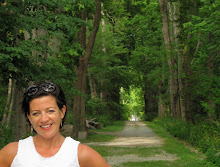This is my first post. Yay. And it definitely falls into the "Other Stuff" category. When I decided to start a blog, I first thought it would be about plants. Then maybe New York and Plants. Then I added the Other Stuff as a catch-all. Good thing. I look things up on wikipedia a lot, so I may as well put the answers here, in case you find it interesting.
I saw Charlie Wilson's War over the holiday - great movie. It wasn't as talky-sounding as an Aaron Sorkin teleplay. Perhaps the writing was better, or better actors handle the material differently.
Anyways, it launched a long discussion between my parents and me about what has happened to Afghanistan since the Soviets withdrew. As a New Yorker, my first thought is 9/11. But the conversation soon enough touched on issues of isolationism, the universalities of democracy (if there are any), the war in Iraq and naturally the presidential race.
Then, about a half hour in, the question dawned on us: What did the USSR even want with Afghanistan? In the movie, the country is described as a "pile of rocks" and besides the recent boon in heroin production, the country doesn't seem to claim any natural resources.
Well, after some very unprofessional research on wikipedia, here's a quick and dirty explanation (as my assumptions - and my folks' - were a little off-base).
In 1965 three men in Kabul founded the People's Democratic Party of Afghanistan (PDPA). They were two camps supporting two ideologies, both largely influenced by Marxism. The first camp closely followed the Marx's Communist Manifesto, advocating a strong working class uniting and ultimately overthrowing the government. The second camp, reasonably enough, determined Afghanistan was too rural an area for a legitimately large and strong working class and instead proposed positioning the existing government in a more Marxist stance.
By 1978, both sects reached an unsturdy compromise, with lots of help from Moscow. At this time a member of the party was assassinated. Higher-ups of the PDPA worried that the current President of Afghanistan, Dauod, was planning to assassinate them all. This provoked protests and ultimately led to the arrests of some of these higher-ups. Those not arrested felt this was the call to arms and the PDPA staged a coup, removing Daoud from his post. A man named Taraki became President, Hafizullah Amin became Prime Minister.
While the PDPA assumed control of the country, they put forward some progressive policies - religious freedom, even some indications of broadening the rights of women. In short, this really irritated the fundamental Islamists, in this case, the Mujahideen. It was at this time that Taraki was killed and Amin became president. As their opposition became more pronounced, the Soviets occupied Afghanistan to maintain PDPA control. The USSR had a few other motives in mind as well. When the US helped broker the peace treaty between Israel and Egypt, the Soviets interpreted increased US involvement in the middle east as a threat. US military presence in the area, particularly in the Arabian Sea, had also increased. This was due to the US-supported Shah of Iran's defeat in the Iranian Islamic Revolution in 1979. Finally, there is a history, dating back to 1919, of the Soviets providing aid to Afghanistan, at that time it was for the Afghanis to fight British occupation. (This leads to the next question - what did the Brits want with Afghanistan? That's another post.)
By the request of the newly-installed President of Afghanistan, Amin, the Soviets became an occupying presence in Afghanistan. However, within the year, Amin's loyalty to the USSR was questioned by the Soviets. When they learned of Amin speaking with a CIA operative (this was never proven), as well as the fact that Amin's guards had allegedly suffocated Taraki with a pillow, they determined he was an untrustworthy comrade. There were also rumors that Amin was in talks with China.
In December '79, Soviet occupation began in earnest, the American government (and certainly the rest of the world) started paying attention, and the Mujahideen's fight against the Soviets soon became underwritten by the US, with help from Egypt, Saudi Arabia and Pakistan.
Let me remind you, this is a completely bastardized version of history, paraphrased entirely from wikipedia. When I decided to look this up, I was hoping for a much simpler, shorter answer (like: oil). Oh well, I suppose it could never be that simple.

